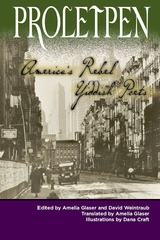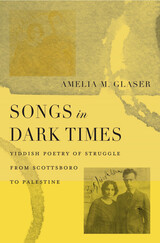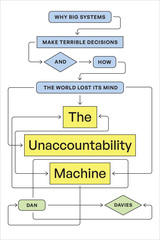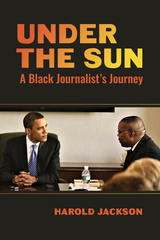
In the early decades of this century, the wave of immigration that brought nearly two million Jews from the Pale of Settlement to the United States included an extraordinary group of gifted Yiddish poets and writers, who came to be called Di Yunge (The Young). A Little Love in Big Manhattan tells the story of two of the Young’s most prominent figures—Mani Leib, a lyric poet intent on refining the hard facts of his life into works of enduring beauty, and Moishe Leib Halpern, for whom poetry had to be the expression of coarse and shattering reality.
Through a dual biography of these opposing personalities, Ruth Wisse describes the rich and vital cultural movement that embraced them both. She tells of the burst of creative energy exhibited by the young poets and intellectuals who, after a long day of manual labor, would congregate in the cafes of the Lower East Side for badinage, debate, and literary talk. They started literary journals and compiled anthologies of their writings, which found their way overseas and had a rejuvenating influence on Yiddish poetry abroad. Ironically, their achievement coincided with the decline of the language in which they wrote, so that Yiddish poetry came into its own in America at a time when the next generation could scarcely read it; there were no literary heirs.
Ruth Wisse presents modern Jews with a part of their lost inheritance, and also claims for the Yiddish poets a place in the American canon. The first book to present these poets as part of the history of immigrant Jews in America, A Little Love in Big Manhattan (the title is from a poem of Halpern’s) will appeal to readers of poetry and to people interested in facets of the intellectual and artistic atmosphere of the interwar period.

This anthology presents a rich but little-known body of American Yiddish poetry from the 1920s to the early 1950s by thirty-nine poets who wrote from the perspective of the proletarian left. Presented on facing pages in Yiddish and English translation, these one hundred poems are organized thematically under such headings as Songs of the Shop, United in Struggle, Matters of the Heart, The Poet on Poetry, and Wars to End All Wars. One section is devoted to verse depicting the struggles of African Americans, including several poems prompted by the infamous Scottsboro trial of nine African American men falsely accused of rape. Home to many of the writers, New York City is the subject of a varied array of poems. The volume includes an extensive introduction by Dovid Katz, a biographical note about each poet, a bibliography, and a timeline of political, social, and literary events that provide context for the poetry.
Winner of the Fenia and Yaakov Leviant Memorial Prize in Yiddish Studies for Outstanding Translation
A Choice Outstanding Academic Title

A probing reading of leftist Jewish poets who, during the interwar period, drew on the trauma of pogroms to depict the suffering of other marginalized peoples.
Between the world wars, a generation of Jewish leftist poets reached out to other embattled peoples of the earth—Palestinian Arabs, African Americans, Spanish Republicans—in Yiddish verse. Songs in Dark Times examines the richly layered meanings of this project, grounded in Jewish collective trauma but embracing a global community of the oppressed.
The long 1930s, Amelia M. Glaser proposes, gave rise to a genre of internationalist modernism in which tropes of national collective memory were rewritten as the shared experiences of many national groups. The utopian Jews of Songs in Dark Times effectively globalized the pogroms in a bold and sometimes fraught literary move that asserted continuity with anti-Arab violence and black lynching. As communists and fellow travelers, the writers also sought to integrate particular experiences of suffering into a borderless narrative of class struggle. Glaser resurrects their poems from the pages of forgotten Yiddish communist periodicals, particularly the New York–based Morgn Frayhayt (Morning Freedom) and the Soviet literary journal Royte Velt (Red World). Alongside compelling analysis, Glaser includes her own translations of ten poems previously unavailable in English, including Malka Lee’s “God’s Black Lamb,” Moyshe Nadir’s “Closer,” and Esther Shumiatsher’s “At the Border of China.”
These poets dreamed of a moment when “we” could mean “we workers” rather than “we Jews.” Songs in Dark Times takes on the beauty and difficulty of that dream, in the minds of Yiddish writers who sought to heal the world by translating pain.
READERS
Browse our collection.
PUBLISHERS
See BiblioVault's publisher services.
STUDENT SERVICES
Files for college accessibility offices.
UChicago Accessibility Resources
home | accessibility | search | about | contact us
BiblioVault ® 2001 - 2025
The University of Chicago Press









